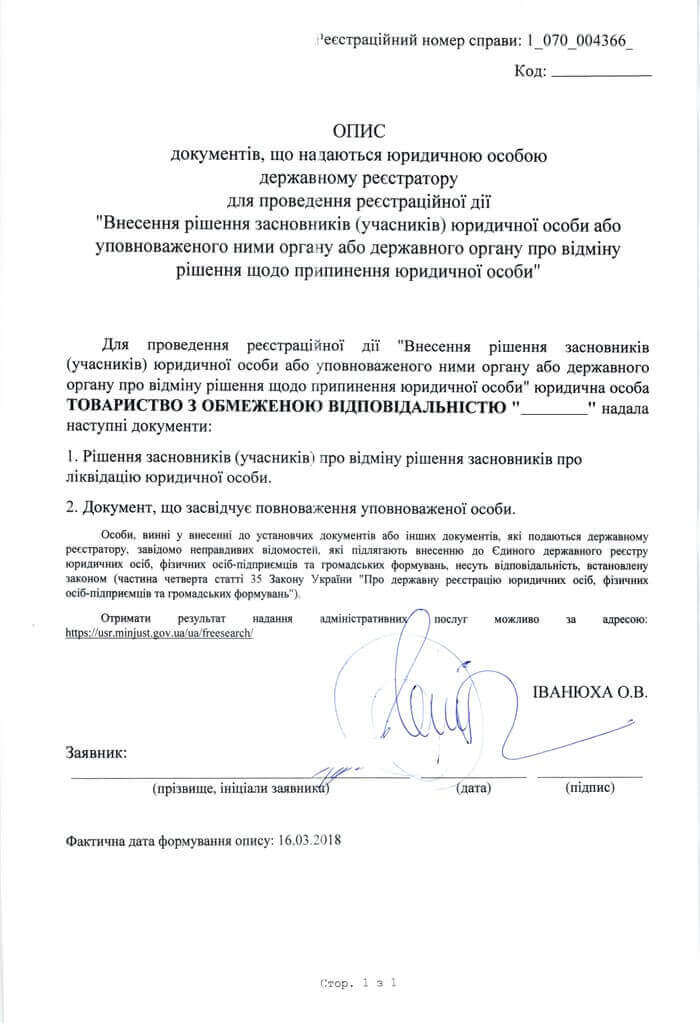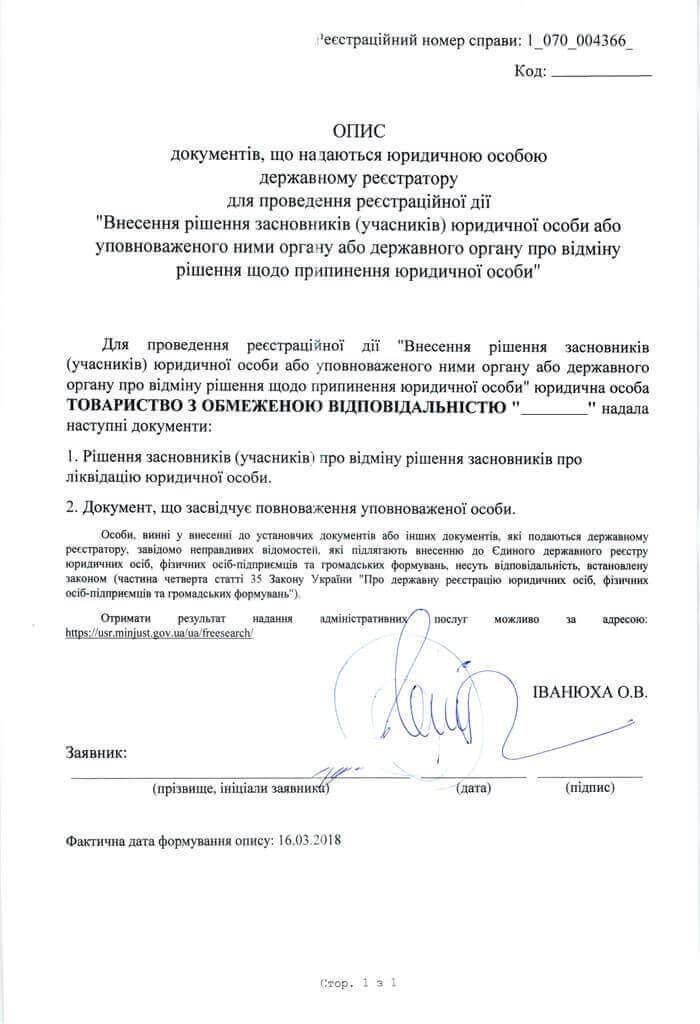Alternative Liquidation of an LLC: Dissolving a Company Without Terminating the Legal Entity
Cost of services:
Reviews of our Clients
... our work on joint projects assured us of your high level of professionalism
A client who was one of the founders of a financial firm approached us for assistance. He held 95% of the company’s charter capital, which totaled several million dollars. Unfortunately, the business did not evolve as the owners had anticipated, necessitating a halt in operations, the cancellation of licenses, and so forth. Complicating matters, a partner who co-founded the company and owned 5% of its charter capital had completely disappeared. Consequently, our client was eager to dissolve the company as swiftly as possible.
We clarified that a swift dissolution would take at least six months for a full (traditional) liquidation of a legal entity. This process would require maximum effort from us and the client, as there are long queues for tax authority inspections, which progress slowly. Moreover, conducting these inspections would require a plethora of original documents, including proof of transactions (contracts with counterparties, service acceptance certificates, goods and transport bills of lading, etc. Given the urgency, we proposed an alternative route: selling his share and resigning from his directorial position. Although not a dissolution of the legal entity, this strategy is often termed "alternative liquidation." It offers former business owners a rapid means of detachment from the company, which was ideal for our client.
In this article, we draw from this case study to discuss the strategy of alternative liquidation and its advantages for stakeholders. Our legal team will highlight potential challenges that could arise without adequate legal knowledge. If you are seeking more information or need consultation on how to exit a company promptly, we are prepared to offer the necessary guidance. Our extensive practical experience enables us to consistently devise optimal, swift, and legal solutions tailored to each situation.
You may also like: Can You Sell a Company with Debts and What Is Alternative Liquidation?
Selling Your Stake in an LLC Without the Consent of Other Members: Is it Possible?
Generally, it is possible unless the company's charter specifies otherwise. According to part 2 of Article 21 of the Law “On Limited Liability and Additional Liability Companies,” the charter may include a clause requiring members to obtain approval from other members before selling their shares. Thus, if the members did not incorporate such a clause when forming the company or amending its charter, there would be no requirement to seek others’ consent, allowing any member to sell their share freely.
However, if the charter includes a mandatory consent clause, this requirement can significantly complicate the process for those looking to exit the LLC. One might hope for an oversight by state registrars or assume they might not check the charter thoroughly. But if the transaction proceeds and other members challenge it based on the charter's stipulations, they have a strong likelihood of prevailing in court.
Dismissing a Director When Not All Members Are Present: Insights from Ukrainian Legislation
Can a director be dismissed or resign if not all members are present at the general meeting? This scenario represents one of the more complex issues in corporate governance. Here's an explanation based on the applicable law, specifically Article 34:
- Some matters require unanimous consent from all members.
- Decisions on some issues need a three-quarters majority vote from members.
- All other matters, including the dismissal of a director, can be resolved with a simple majority vote.
The dismissal of a director falls into the category of all other matters that can be resolved by a simple majority. Furthermore, recent amendments to Article 33, Part 4 of the Law, aligned with the provisions of Article 15 of the "Law on Registration...", state: "The minutes, containing the decision to change the company’s director, if the decision can be made with no more than 10 people's votes, must be signed by the members (or their representatives) who voted for the decision and whose votes are sufficient for its passage, unless the charter specifies otherwise."
This means if the present members collectively hold 95% of the capital (votes), their votes are sufficient to change the director. Moreover, their signatures on the minutes are enough to validate the document as legitimate. However, based on our experience, some registrars still insist that the minutes be signed by all members. This requirement is both impractical and incorrect. If a majority vote suffices to make a decision and the law only requires those who voted to sign the minutes, there's no justification for requiring signatures from all members.
Such legal misunderstandings were prevalent until recently, and not all notaries and registrars are up-to-date with the changes. In these instances, we either have to educate them ourselves or seek out those who actively keep abreast of legislative updates. This task proves difficult for clients without legal expertise, especially when faced with an "extraordinary and plenipotentiary" registrar who claims such actions are not permissible.
In this particular case, to help our client disengage from the company, we found individuals ready to buy into the business and assume its leadership. We collaborated with an experienced notary and registrar who is knowledgeable about current laws to ensure everything was handled correctly. This approach enabled our client to exit the firm quickly and legally, avoiding any potential future complications.
You may also like: How to Resign as a Director When a General Meeting Cannot Be Convened?
Therefore, if you find yourself grappling with a similar issue, don't waste your efforts on unsuccessful attempts to handle complex corporate situations on your own—reach out to us instead. Our lawyers have over 12 years of experience in resolving intricate corporate matters, and we understand precisely how to act when liquidating a legal entity isn't suitable for you, but you need to disentangle yourself from the company quickly. We will evaluate your situation and identify the optimal solution. If selling corporate rights (also known as alternative or express liquidation) emerges as the best route, we will find trustworthy buyers for the business and manage all the necessary paperwork.
Don't delay—call us on our toll-free multichannel line at 0 800 201 958, or use the "Request a Call" button to schedule a consultation with our experts. Entrust your legal matters to professionals!
Our clients
















